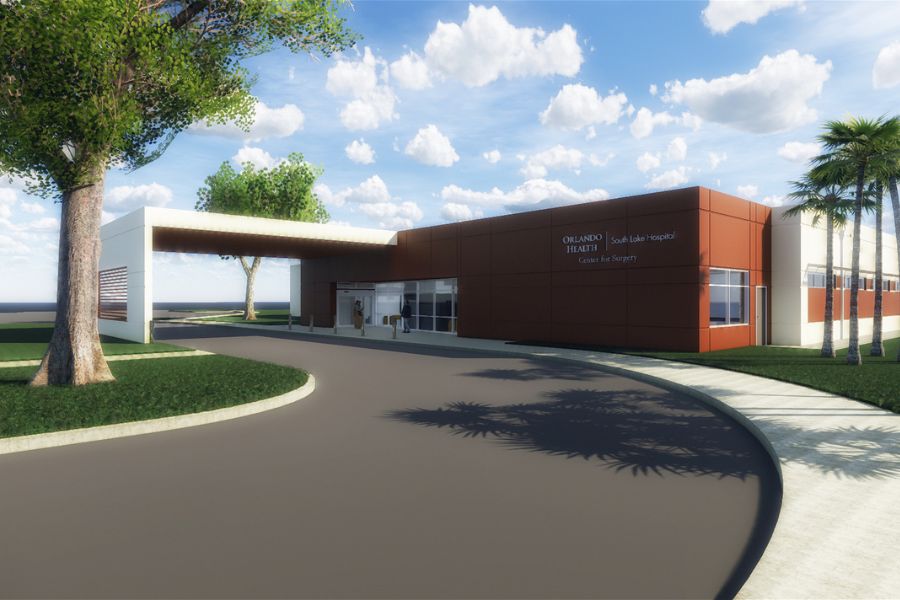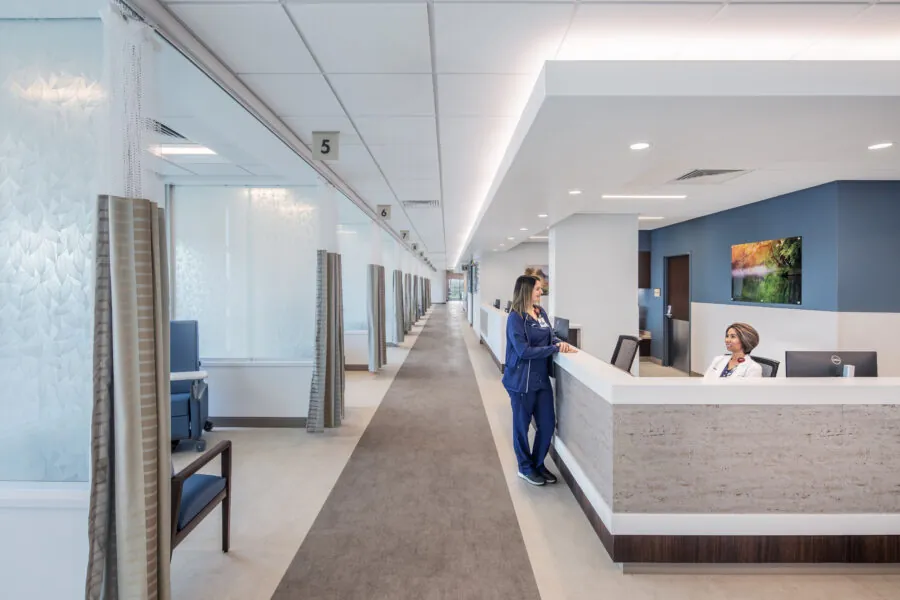Why Your Next Healthcare Design Needs an ACHA Architect

The path to becoming a surgeon is long and arduous. Students study for the better part of a decade to become doctors, and then they spend several more years in fellowships and residencies to learn their craft on the job.
When a patient requires surgery, however, all of the time spent in preparation – as well as continuing education to stay on top of the latest techniques – is all worth it.
Architects face a similarly daunting task when designing a healthcare facility, which must conform to an ever-growing list of standards, codes and regulations. And, just like surgeons, a lot of what architects need to know about these projects cannot be learned in a classroom or a textbook, but only through experience.
This is why the American College of Healthcare Architects (ACHA) exists. The organization provides board certification for architects who practice as healthcare specialists. Certificate holders include healthcare architects throughout the U.S. and Canada with specialized skills and proven expertise.
Granted, architects are not required to have ACHA accreditation to work on healthcare facility projects. But there are a few reasons why healthcare systems should consider working with an ACHA-accredited team on their next facility.
ACHA Architects are Battle-Tested
ACHA architects are bound by an additional set of rules that regular architects don’t have to follow — not just building codes, but Facility Guidelines Institute (FGI) standards for healthcare design. The ACHA requires its certificate holders to work toward the improvement of healthcare architecture on behalf of the public, to practice in an ethical manner, to maintain high standards of specialized continuing education, and to add to the body of knowledge.
Before earning the ACHA Board Certificate, healthcare architects must document their experience and demonstrate their skills through an exam. To even take the test, architects must show:
- A portfolio with at least five years of healthcare design experience.
- Three letters of affirmation from peers – not including coworkers.
- Three letters of affirmation from prior healthcare clients.
The ACHA exam covers knowledge areas architects would only know with multiple years of practical healthcare experience. Architects must demonstrate knowledge of healthcare delivery and care models, the market forces that drive the need for healthcare facilities, regulations, codes and pre-design procedures like programming, workload analysis and master planning.
Once architects become an ACHA member, they have full access to – and influence of – the entire organization’s knowledge base.
More Support Before and After the Design Process
Once the architectural drawings are submitted and the building permits are acquired, the work is just beginning. ACHA architects stay on board as the owner’s agent for their project, representing them in purchasing decisions for materials, design evaluation, commissioning and more.
In addition to knowing what we know about design, the ACHA encourages its members to have a comprehensive view of the healthcare field. In fact, ACHA members assist in determining if a project should be built at all.
As part of the ACHA process, architects have a responsibility to study the market and demographics of an area to see if there is a need for a given practice. If there are similar practices in the area that are struggling to find patients, another practice in the same area may not make sense to be built.
Peace of Mind for Your Team and Facility
Healthcare facilities may work with architects who don’t have healthcare accreditation, but the knowledge gap these architects may face could end up costing your facility more as the project progresses.
On the other hand, ACHA architects will be able to speak the language of healthcare, thoroughly understand the current issues, trends and regulatory requirements of the industry, and offer informed solutions to ensure your facility is set up for years of success.
That is the kind of confidence and peace of mind that has no price tag.



